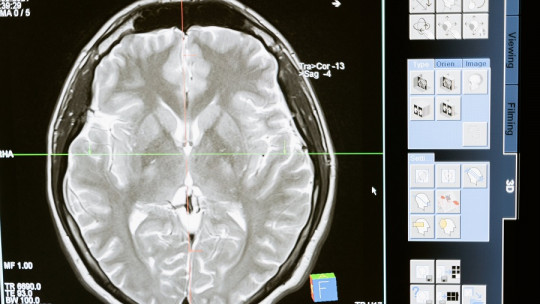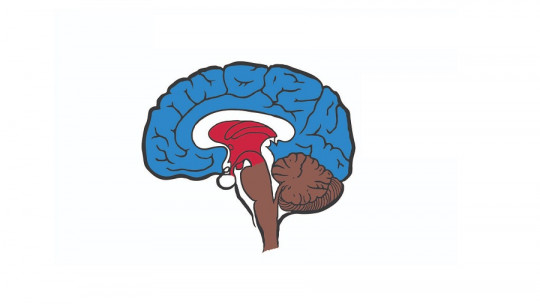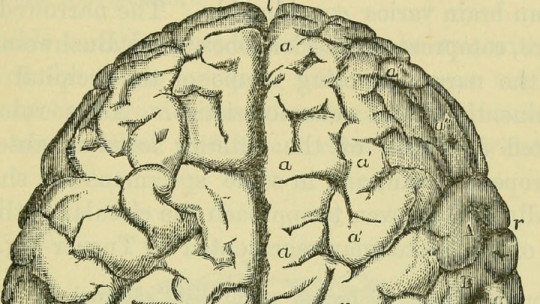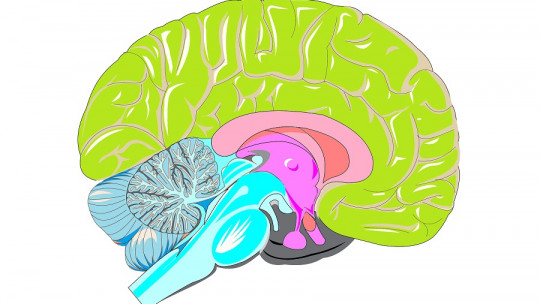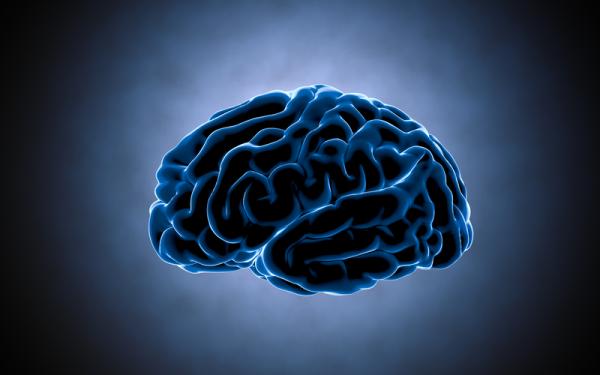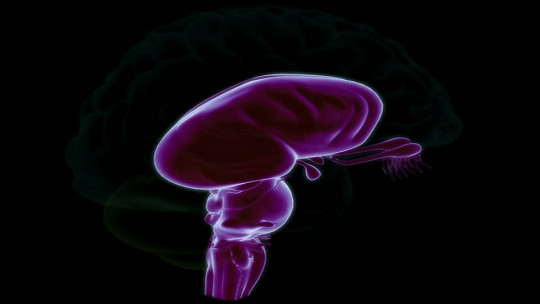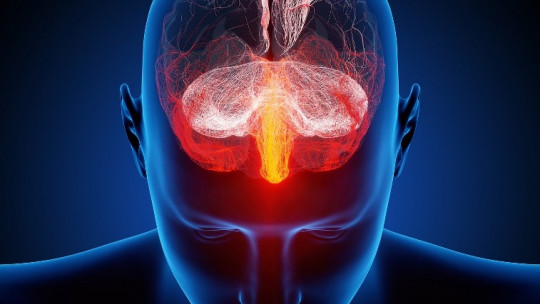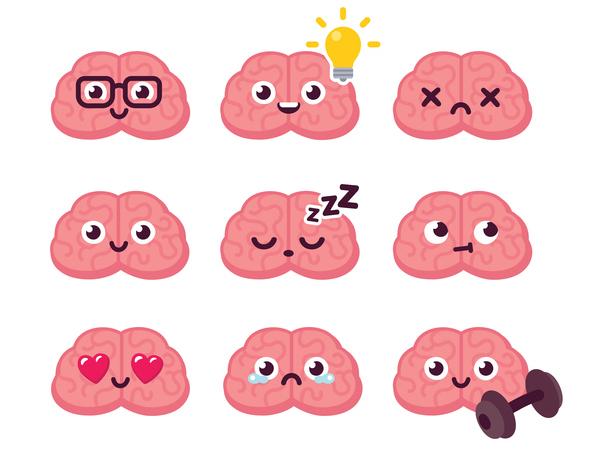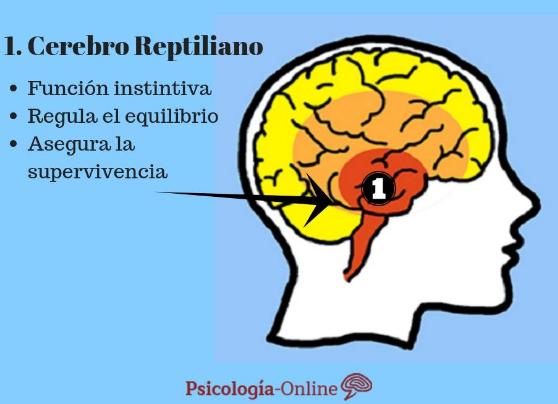
Over time, certain evolutionary improvements have been implemented in the brain of human beings that have allowed us to adapt to the different changes that have been presented to us and this is one of the main reasons why we have been surviving. as a species. It is said that our brain is 3 times larger than that of primates and at the same time it is made up of different areas that over time have been incorporated into each other throughout evolution.
In this way, it has been found that there are three types of brains, which are the following: the reptilian brain, the emotional brain or limbic brain and finally the rational brain or neocortex. In this PsychologyFor article, we will talk about What is the reptilian brain: parts and functions In addition, we are going to tell you in detail what this type of brain consists of.
What is the reptilian brain?: definition
As we know, the brain has been constantly evolving for more than 250 million years and throughout this process it has acquired new functions and increasingly complex abilities. The oldest brain, to which the limbic and neocortex is he reptilian brain
This brain was identified and developed through MacLean’s triune brain theory. The reptilian brain Also known as R complex or reptilian complex, It is what we share with other mammals and reptiles. It is mainly responsible for launching our most basic and primitive functions, such as protecting us from possible threats, defending ourselves and fleeing to ensure our own survival. It is also responsible for carrying out some unconscious and involuntary behaviors such as our breathing, blood pressure, temperature, balance, among others. The reptilian brain or reptilian complex occupies approximately 5% of our total brain mass.
Characteristics of the reptilian brain
This type of brain it’s not reflective and on the contrary, he acts unconsciously and by instinct. As its main function is to be in charge of our own survival, it is considered that it is also responsible for making it difficult for us to achieve our personal goals since it feels safe only being in known terrain, however when it enters unknown terrain, it feels extremely threatened and prefers to flee and escape rather than face something new.

Parts of the reptilian brain
The reptilian brain is made up of the reticular system, the cerebellum, the basal ganglia, and the brain stem. Below we will briefly explain what each of these parts of the brain consists of:
- Basal ganglia: These are neuronal structures that are connected to each other and are located deep in the cerebral cortex. The main function of the nasal ganglia is to process information about our own body movement to adjust it to different situations and also carry out an appropriate act. For example, when we want to drive a car, we have to carry out certain actions and body movements to do it correctly. So it also helps us plan our actions to achieve some objective.
- reticular system: It is a set of neurons that are located in the brain, near the spinal cord. The main function of this system is to regulate the state of sleep and wakefulness. It is also in charge of filtering the information that comes through the senses, choosing those data that are of interest and putting aside those that are irrelevant, which ultimately do not reach consciousness.
- Cerebellum: It is one of the oldest parts of our brain and is located in the posterior fossa of the skull, as it is an extremely compact organ. The main function of the cerebellum is to maintain adequate balance and muscular coordination.
- Brain stem. It is located between what remains of the brain and the spinal cord. The brain stem, also called the brainstem, is made up of 4 different areas that are connected to the diencephalon. The main task of the brain stem is to serve as a circulation route for almost all sensory pathways, with the exception of olfactory and visual pathways.
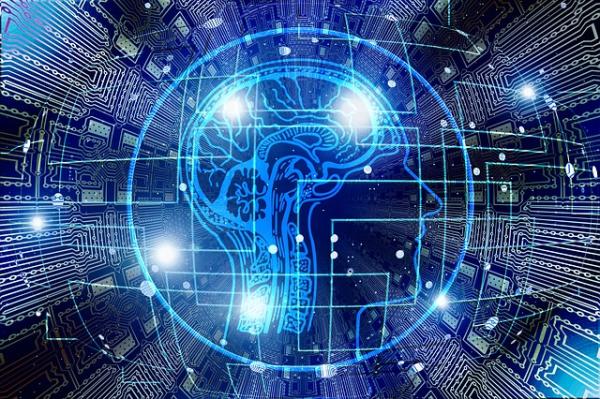
Functions of the reptilian brain according to psychology
Once we know what the reptilian brain and its parts are, it is important to know the functions of the reptilian brain
The reptilian brain fulfills different functions in our daily lives, below we are going to mention in more detail what they are exactly.
- Survival. As we have seen previously, the main function of the reptilian brain is to keep us protected from any threat that arises and also to ensure our survival. Although it is undoubtedly an essential and extremely important function, sometimes, if we do not know how to control it, it can prevent us from achieving our vital goals and objectives when facing new situations. This is because it perceives new situations as possible threats and prefers to stay in the “safe area.”
- Regulate basic vital functions. As we saw previously, it is responsible for the regulation of our basic functions such as breathing and cardiac functions.
- Avoid pain. It is responsible for seeking pleasure and all those sensations that are pleasant to the person.
- Territorial behavior. It is one of our own survival instincts that makes us tend to defend our home and also take care of the people closest to us and our belongings.
- Reproductive need. To ensure survival, the reptilian brain is responsible for activating our sexual instinct and motivation that causes us to be attracted to other people.
This article is merely informative, at PsychologyFor we do not have the power to make a diagnosis or recommend a treatment. We invite you to go to a psychologist to treat your particular case.
If you want to read more articles similar to What is the reptilian brain: parts and functions we recommend that you enter our Neurosciences category.
- Alonso, JRA (2017, November 9). The myth of the reptilian brain. Retrieved December 9, 2018, from https://jralonso.es/2017/08/24/el-mito-del-cerebro-reptiliano/
- Salazar, CESA (sf). Brain evolution. Retrieved December 9, 2018, from http://www.binasss.sa.cr/revistas/neuroeje/v10n1/art3.pdf

